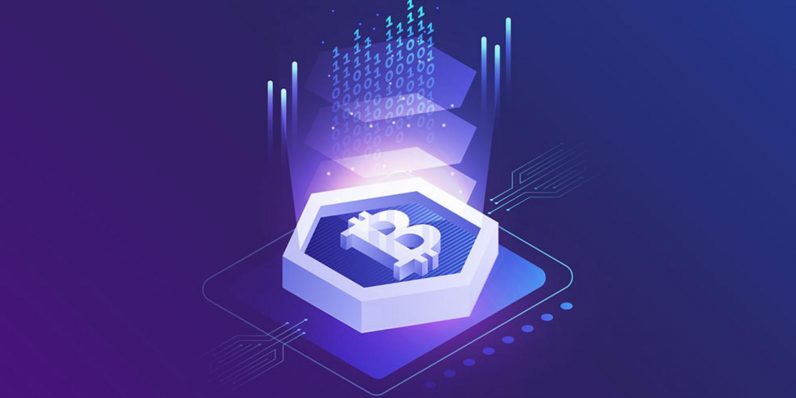
According to LinkedIn’s most in-demand skills of 2020, the demand for blockchain technology has increased manifold in countries like the U.S., U.K., France, and Germany. Another mainstream job portal, Hired reported a whopping 517% rise in the demand for blockchain developers in 2019, including some of the industry’s highest-paid salaries, leading to an increase in the demand for blockchain courses amongst beginners and professionals. Top-tier brands like IBM and Deloitte, actively recruit people skilled in the niche. Therefore, it is safe to infer that as a technology, blockchain can help in a wide array of departments – from business management to product development. But as a blockchain developer, things have never been better.
In a total recall, the first observed demand for blockchain as technology began with the December 2017 bitcoin leap, when it reached its highest-yet $20,000 on CoinDesk’s price index and sent Wall Street into a frenzy. Since then, cryptocurrencies had their highs and lows, but it made business owners realize the vast void in terms of blockchain developers and blockchain professionals in general. That’s why such professionals are an asset to brands. But, what exactly is blockchain, and what scope does it bring in terms of revenue for a business?
What is blockchain?
Often people confuse blockchain with that of bitcoins, but in reality, blockchain is an aid for the latter to power its mining. Coming into existence in 2009, blockchain, in its most rudimentary level, is a fail-safe data-storing method. It is made of chains of blocks, where each block is a technique of safekeeping data permanently, irrespective of its creation or address, and thus cannot be tampered at any point. On the other hand, the chain can be defined as the public database in which all the data is stored and made transparent to viewers. Such a network requires learned technicians for keeping the processes streamlined over time, known as miners, who can earn bitcoins in the process over time with the right tools.
Here’s an in-detail example of how it comes together:
- If you’re purchasing from an e-commerce store that runs on the blockchain principle, the block shall store data about your transaction in fields like date, time, and amount. This block would also save your name and the retailer name of the purchase, but instead of writing your actual name, it would use a distinct digital signature. Notably, a digital signature is a non-distinguishing value that would mean nothing to any viewer.
- Since a network contains millions of such blocks, each with their digital signature, oblivious to human eyes, the blocks can distinguish between the blocks with data and others with the help of a unique cryptographic code known as a hash. Such codes are generated by unique algorithms and can be updated with new transactions/data fields.
- Each block can store up to 1MB of data and keep up to a few thousand transactions.
Who are blockchain developers?
Now that you know how blockchain works in its elementary state, it’s time you learn about blockchain developers and their work scope. As mentioned before, blockchain as a skill is similar to saying IoT or edge computers since the roles can come across different fields. As an ideal candidate, you must have acquired an understanding of smart contracts and distributed applications (DApps). While C++ powers bitcoins, Ethereum and HyperLedger use Solidity and Vyper, and Python, Node, Golang, and JavaScript, respectively.
Overall, a blockchain developer can also be a core blockchain developer who is responsible for creating the entire architecture of a blockchain system, and ensuring its security. A blockchain software developer takes leadership on the core architecture of a blockchain system and designs smart contracts and decentralized applications. Here are some of the highlights your profile may possess as a blockchain software developer:
- Solid understanding of public and private keys, proof of stake and proof of work, digital signatures that can help you begin with a few blockchain projects on GitHub
- Advanced knowledge of computer science and development essentials like object-oriented programming, functional programming, algorithm design, complexity analysis, etc.
- Fluent in at least two significant frameworks
- Relevant experience in software designing across all stages – scoping, planning, conception, design, implementation, testing, documentation, delivery, and maintenance
- Produce competent, reliable, and creative codes to perform complex operations
- Thorough in the industry-best practices in the lifecycle of software development from source control management to testing and DevOps
- Prior experience in managing stakeholders and guide junior software developers
- Creating blockchain and consensus protocols
- API handling and request handling
What are the career prospects of a blockchain developer?
As a technology, blockchain can bring in cumulative skills and expertise to the table. The demand has hit its all-time high as blockchain can make brands seamlessly integrate their business operations. On average, blockchain developers’ salaries can range from $150,000 and $175,000 per year as per Hired. Experienced blockchain developers’ salaries are on the higher side of $200,000 per year and can increase with time and experience. In India, Glassdoor reports the average salary of blockchain developers to be at INR 706,265 per annum on an average, making it one of the most sought-after career options in the market.
Going forward, blockchain, in all its dynamism, is an emerging domain that paves the way for self-evolving technologies. For a software developer looking forward to learning and contributing to the intriguing field can find it deeply enriching and rewarding in the coming years for its relevance in the market, especially with brands like SALT Lending, Gemini, and IBM, setting new trends in the blockchain era.
